Dear cannabis consumers and those concerned with criminal justice reform:
It is time once again to join Arizona NORML at the Arizona State Capitol for our annual lobby days. We have already scheduled more than 40 meetings for interested cannabis consumers and businesspeople on Wednesday Feb. 5, 2020 at the Arizona State Capitol with nearly half of our state’s legislators. All appts will take place in legislative offices (1700 w Washington, PHX). The legislators will appreciate hearing from people who know a little something about them, the general subject matter of cannabis, having a brief but pointed personal story on the issue and knowing the specific bills in play this session that can affect cannabis laws.
YOU would be perfect.
If you are interested in joining us and having your voice heard, please send a short note to normlazchapters@gmail.com with your Legislative District or zip code if you don’t know, plus your phone number and email. Any volunteers interested can attend our lobby day training, Tuesday Feb 4 at our normally scheduled AZ-NORML meeting, 7pm 929 e Indian School, PHX. You can learn more about our chapter’s work by browsing around our website. You can learn more about the AZ State Legislature by clicking this link. We are asking you to learn more about the pending cannabis-related bills we are highlighting by clicking on the links below.
Current Legislation Top Four Bills
HB2049-Sponsor: Rep Espinosa (D-LD19) Not Assigned: Bill to add autism and opioid use disorder as qualifying conditions for an MMJ certification. Coincidentally this bill is the flagship issue of AZ-NORML’s 2020 legislative agenda, though the sponsor had not worked with NORML in the drafting and is the third legislator to carry the bill in the past three yrs. AZ-NORML is working with Brandy Williams, science advisor for the national organization MAMMA (Mothers Advocating for Medical Marijuana for Autism), to bring attention to the 800 pages of new peer reviewed research she’s amassed in her work. THX to Williams and MAMMA, 17 states have added autism as a qualifying condition.
HB2638-Sponsor: Rep Blackman (R-LD6) Not Assigned: Bill to create official policy for “deflection programs,” police protocols that allow officers to not arrest folks for various minor offenses (including incidental marijuana possession—cannabis that turns up while a suspect is being searched for a different offense). AZ-NORML executive director, Mikel Weisser, and legal counsel, Tom Dean, participated in Blackman’s criminal justice subcommittee that shaped the crafting of this bill. AND, Blackman had success in 2019 with criminal justice reform bills.
SB1015-Sponsor: Sen Borrelli (R-LD05) Assigned Health and Human Services Committee: Bill to adopt federal banned pesticide list as AZ’s standard. Industry supports some bans, opposes broad list. Could be negotiated.
HB2359-Sponsor: Rep Toma (R-LD22) Not Assigned: Bill to prevent applicants from being denied licenses for having previous drug charges including cannabis. Toma had been part of a criminal justice reform taskforce in 2019. This is a new variation on a great idea that is sadly going to be a hard sell to GOP leaders even though Toma is a well-respected Republican himself. AZ-NORML Position: YES Likelihood of Passage: <50%.
IN THE WORKS
Dedicated MJ-reformer, Rep Pam Powers-Hannley (D-LD09), has been working with AZ-NORML for legislation on three topics: a response to AZ’s digital card fiasco (requiring DHS include an actual plastic card for patients as part of their certification); a defelonization bill for up to 4oz (AZ’s cannabis reforming legislators have symbolically filed at least one defelonization bill each year since 2014); and a bill to allow physician’s assistants (PAs) to recommend patient certifications.
We are still analyzing bills as they come in. For an overview of cannabis related bills filed thus far, CLICK HERE.
Tips:
- If you cannot commit to the whole day, or a specific appt time, all AZ-NORML supporters are invited to join us in the House galley at 1:15pm for the opening of the House floor session where we will be introduced by members of the House of Representatives. Immediately afterward we will be taking pictures in the Capitol courtyard.
- If you CAN schedule a session, arrive five to ten minutes early. Check in at front desk in lobby of Senate or House. (NOTE: House security involves metal detectors and the emptying of pockets, not required at Senate).
- Waiting areas on 1st & 3rd
- Dress reasonably well and speak your best language.
- Talk about your personal reasons for supporting cannabis reform. Talk specifically about ways the provisions of the bill will affect your life. Less abstract, more personal.
- Don’t be annoyed if the legislator doesn’t know much about cannabis as medicine or has a reefer madness prejudice. The fact they are taking this meeting means they’re trying. Half of the legislators are still refusing to take meetings with cannabis consumers.
- In most cases you will only have 15 minutes. Stay on topic. These meetings are about improving the state medical program. Avoid discussing legalization or using the word “recreational.” If necessary, refer to it as “adult use.”
- Don’t demand a definitive answer. In fact, don’t demand. Persuade, plant ideas.
- Encourage them to ask you questions.
- Ask them questions.
- Review the bill before your meeting.
Handy facts:
- Cannabis has been cultivated for more than 10,000 yrs and earliest recorded medical uses date back more than 2000.
- The Endocannabinoid Receptor System and endogenous cannabinoids were discovered in the 1990s explaining the biochemical reasons cannabis has therapeutic uses. (The body regulates pain and cellular metabolism using similar biochemicals.)
- 33 states now have medical cannabis industries, including nearly two million patients. Arizona has over 230,000 current patients and another estimated 350,000 who are no longer in the program. Our program contributed an estimated $45 million in state taxes in 2019.
- Since 2016, nearly 50,000 people have been arrested for simple cannabis possession. Since the 1970s over 26 million Americans have been arrested for cannabis.
Please contact either Mikel Weisser, state director (928-234-5633), or Mike Robinette, Chapter Secretary/volunteer coordinator (520-576-0871) for questions or suggestions.

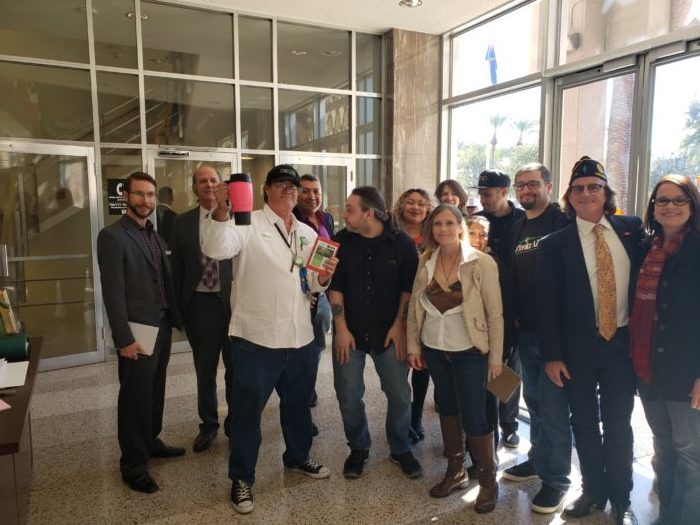
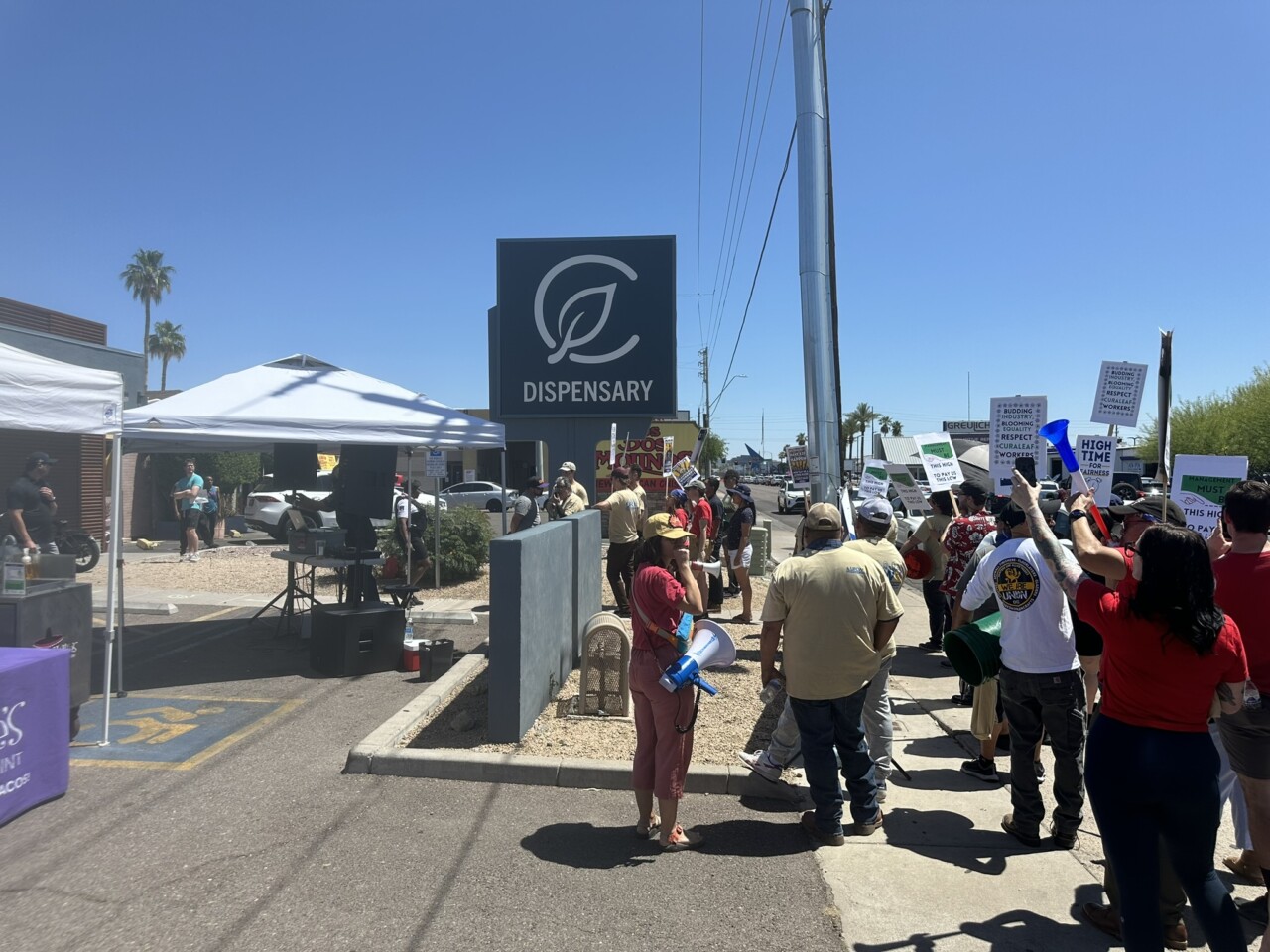
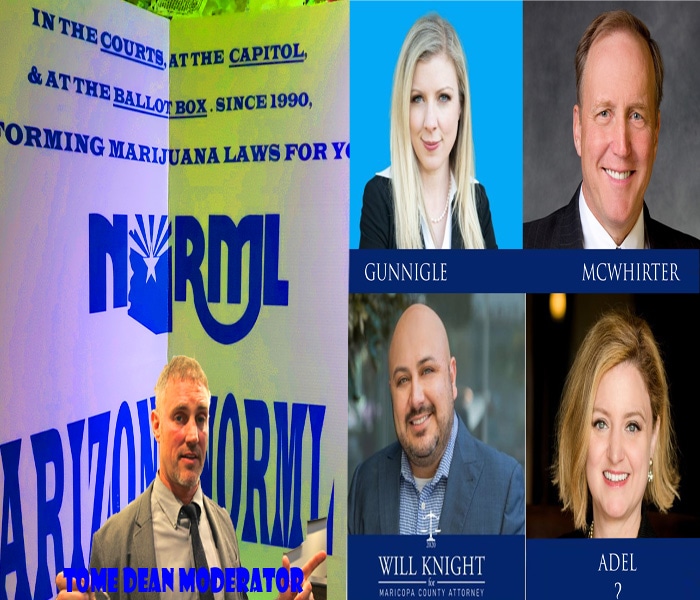


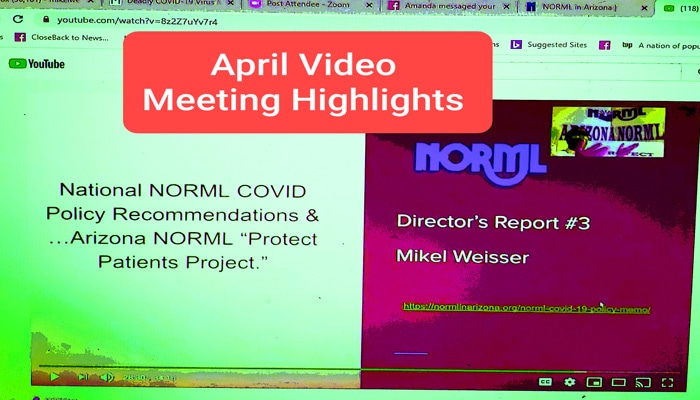
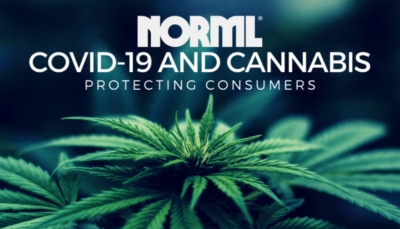
Leave A Comment
You must be logged in to post a comment.